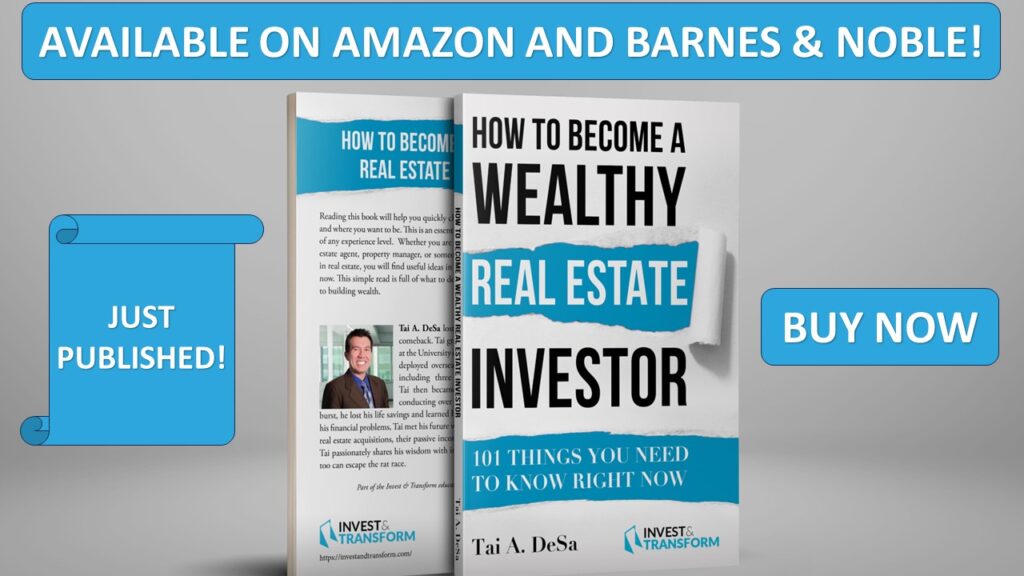
28 Jun 25 Ways to Find a Real Estate Deal!
Maybe you’re a novice investor looking to snag your first deal. Perhaps you’re a house flipper who needs more properties to keep your crew busy. Or it could be that you’re looking to buy a 50+ unit apartment building in a new market to diversify your holdings. This article will give you simple ideas on where to find deals.
- The local Multiple Listing Service (MLS). Realtors use the MLS as a central hub for listed properties. Some people selling For Sale By Owner (FSBO) pay a fee to post their property on the MLS too. Some areas will even have a residential home MLS and a commercial property MLS. The MLS can be a great source for deals. Sometimes you may find a deal the day it is listed. Other potential deals are hidden in plain sight because they’ve been on the market for 100 days or more.
- Your residential real estate agent(s). Realtors don’t just have access to the MLS. They have access to people who are thinking about selling; access to other agents and investors in their office; and ability to sense when a property is selling below fair market value because of their knowledge about neighborhoods. Some investors work with more than one agent. They might have a non-exclusive relationship, meaning that if an agent introduces a deal to the investor, the investor will work with that agent. If the investor buys a deal not found with the agent, the investor is not obligated to work with that agent.
- Tired landlords. These aren’t sleepy landlords; these are landlords who are sick and tired of toilets, tenants, and termites. Read our blog on manifesting deals from tired landlords.
- Wholesalers. A skilled wholesaler, or perhaps a lucky one, may have a deal under contract that they can assign to you. While some wholesalers give this segment of the industry a bad name, there are ones who find off-the-beaten-path deals.
- Bird dogs. A bird dog spots a potential property but, unlike a wholesaler, does not have that real estate under contract. A bird dog will tell you they saw a particular property or spoke with a potential seller, yet you have to do the fact-finding and negotiation. In many areas, technically it is illegal to pay an unlicensed bird dog a fee.
- Other investors. Investors are a great resource for many reasons. One is that an investor may have a property they’d like to sell to you so they can deploy their money elsewhere. Some landlords don’t want their tenants to know the property is for sale, and so a private buyer like you might be perfect for them. Some investors are pitched on numerous deals yet they can’t buy all of them. The ones they say “no” to may be a good fit for you. I regularly ask investors I know to send me their “turn-down” deals – the ones they turned down!
- Home builders. Depending on the market conditions, a home builder may want to sell excess inventory to you. There are landlords who are building homes and apartment buildings to lease.
- Your family and friends. Your family and friends should know that you’re in the market to buy investment properties. They may come across potential sellers at work, school, church, or at a party. And what if someone you know wants to sell…to you? Don’t assume that your loved ones automatically think of you when they come across someone looking to sell. Remind them that you’re in the market to acquire investment properties.
- The pre-foreclosure list. When someone is 90+ days behind on their mortgage payments, the lender or servicer will post a notice in the public records and/or a major newspaper stating that they are initiating foreclosure proceedings. If a foreclosure auction date is scheduled, that will be posted as well. Find a way to contact the owner in advance. Remember that not every person facing foreclosure is looking to sell.
- Auction.com and other similar websites. Foreclosure auctions are posted on a number of websites. Some websites will even be where the auction is held! Some lenders may even hold an auction to attempt to sell the property before the county’s foreclosure auction is held.
- LoopNet. The #1 websites in the U.S. for commercial real estate are LoopNet.com and CoStar.com (same company). Private sellers and real estate agents alike can post properties for sale on these sites. Not everyone looks at LoopNet and CoStar, so there may be a hidden gem.
- Your commercial real estate agent(s). Like residential agents, commercial real estate agents can be a great source of on-market and off-market opportunities. Some commercial agents deal with landlords who own hundreds, if not thousands, of units.
- Property managers. An owner may share their desire to sell to their property manager before talking to anyone else. A good manager has dozens, perhaps hundreds of clients. When you ask them if they know someone looking to sell, a property manager might say, “A little birdie told me…”
- Contractors. Contractors work in lots of properties, and they visit even more to give estimates. Some owners may balk at the cost of renovating their property, so they may tell their contractor that selling may be a better financial option than improving the place. Other contractors work with investors, and the contractors may be able to connect you with those investors. Contractors are helpful too in that they can give you great insight into what a property needs and how much it would cost. Ask your contractors to think of you first when they encounter someone looking to sell.
- FSBOs. Lots of land, houses, and commercial properties are advertised For Sale By Owner. Depending on their motivation, knowledge of market data, and negotiating skills, you may be able to strike a deal that works for everyone.
- Run-down properties. You’re jogging or driving through a neighborhood, and you see a neglected property. That could be a deal! Leave a note at the door. Look up the owner’s information from the public record. You might be a great solution to their problem.
- Real estate websites. Deals are out there. Zillow and Trulia include actively listed houses and FSBOs. Auction.com and Hubzu.com have tons of virtual auctions. Major wholesalers have websites too. Craigslist still has some reach as well. Post an ad on Craigslist, and also search for properties on Craigslist.
- Direct mail. I used to send 2,000 letters a month to people facing foreclosure. Some major wholesalers send letters to every homeowner who has owned their house at least three years. Some investors search the tax records for absentee landlords and then send them a letter. You’d be surprised at how many people read their mail and save your letter.
- Bandit signs or better yet, a sign in your yard. They’re everywhere. Bandit signs don’t always work because most look cheap. However, the cost of printing signs and placing them is low. Be mindful of local ordinances about signs so you don’t receive a fine. A better idea than bandit signs is to place a sign in your yard noting that you’re a local investor looking to buy real estate.
- Newspaper ads. Even though there are fewer newspapers in print, the classifieds still attract attention. Online classifieds can work. Since there are fewer investors placing ads there, your ad might get noticed.
- Radio ads. Consistent, short radio ads can work. Some investors do 30 to 60 minute radio shows to talk about real estate, so the whole show is like an ad.
- Social media posts. Social media is a popular tool because you can build an organic following for free, or you can reach specific cohorts for relatively little money. Some investors create groups or content, and they build a following. Pay for ads on Facebook.
- For Rent signs. Call every For Rent sign you see. Tell the person that you’re a fellow investor. Tell them that one day when they want to sell, they should call you first. Get their contact information and stay in touch. Your investment of time will pay off eventually.
- Your own website. Create a website. Add blogs to it. Pay Google to have your website or blog show up in searches.
- Magnetic sign or sticker on your car. Let your car be a mobile billboard. Slap a sign on the door or perhaps on the rear of the car. When I first started, I put a huge sticker in my back window.
As an investor, you want great deal flow. In other words, you want as many opportunities as possible coming across your desk. Let me know what methods work for you!
Check out my latest book, which has 101 things you need to know about becoming wealthy in real estate!
Tai DeSa is a graduate of The Wharton School of the University of Pennsylvania. He became a full-time real estate investor in 2004 after serving in the U.S. Navy. Tai made colossal mistakes in investing (and learned some things along the way). Tai has coached hundreds of entrepreneurs, real estate investors, and real estate agents on how to increase their income and net worth. He has helped hundreds of homeowners avoid foreclosure through successful short sales. Check out Tai’s books on Amazon.com. Tai may be available for coaching and speaking engagements on a variety of real estate topics. Send an email to tai@investandtransform.com.







No Comments